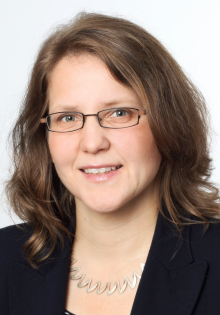Federal Chancellor Friedrich Merz paid his inaugural visit to North Rhine-Westphalia on Monday, 1 September, and took part in a cabinet meeting with the state government as well as various rounds of talks. Among others, seven scientists were invited to an exchange with the Federal Chancellor, Minister President Hendrik Wüst, Deputy Minister President Mona Neubaur, Science Minister Ina Brandes, and Minister Nathanael Liminski. Prof. Dr. Christine Silberhorn, spokesperson of the Institute for Photonic Quantum Systems (PhoQS) at Paderborn University, was also part of the select group. The scientist presented the strengths, potential, and challenges of quantum technologies in Germany and also provided insights into the strong research ecosystem in NRW and the current research topics of PhoQS. Quantum technologies, in particular quantum computing, quantum sensors, and quantum communication, are key technologies that form part of the German government's recently adopted "High-Tech Agenda Germany".
Minister President Hendrik Wüst: "North Rhine-Westphalia is ready to take on a strong role in times of great challenges. As a key state in the heart of Europe, we combine scientific excellence with economic strength and are consistently pursuing the path from coal to AI. As a centre of innovation and the densest research and science area in Europe, North Rhine-Westphalia is attractive for companies and industry."
With 77 universities and colleges, more than 700,000 students and a dense network of research institutes with highly relevant, application-oriented research focuses, North Rhine-Westphalia offers a broad range of expertise. The Paderborn PhoQS plays a central role in this: Thanks to an interdisciplinary team of leading experts from the fields of physics, mathematics, computer science, and electrical engineering, it conducts excellent research in the areas of quantum simulation, communication, metrology, and computing. Prof. Silberhorn: "Quantum technologies offer enormous potential for almost all fields of our lives. That's why it's so important to drive forward basic research and consistently apply it. Our state government has been intensively supporting quantum research in Paderborn for many years. This has enabled us to put Paderborn on the national and international research map as a location for integrated quantum optics and photonic quantum technologies and to act as a national centre. The most recent example is a new, highly innovative research building, the PhoQSLab, which has just been built and could only be realised thanks to the combined forces of the federal and state governments."
According to Prof. Silberhorn, the Federal Chancellor's inaugural visit to North Rhine-Westphalia highlights the strategic importance of quantum technologies for Germany's future and the state's central role in their development. By promoting excellent research and close cooperation between science and politics, North Rhine-Westphalia could further consolidate its position as a centre of innovation.
This text was translated automatically.



